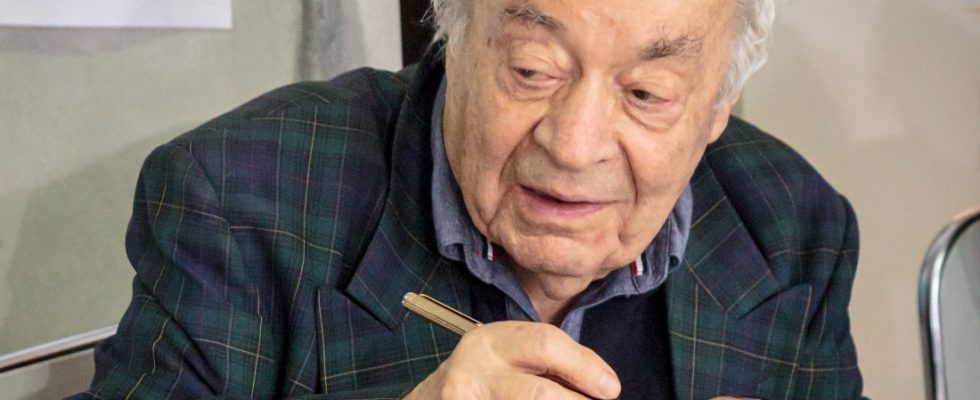Józef Hen doesn’t leave the house much anymore. But he went to the election on October 15th. The photo of the man with white hair throwing the ballot paper into the urn next to a wall bars in a school gymnasium probably also mobilized some people to go to the polling station. If a nearly centenarian can do it, then anyone can do it.
On November 8th, the Warsaw writer, who has called himself Józef Hen since 1944, celebrates his 100th birthday. “It’s a surprise,” he just told the magazine Polityka. He was born Józef Henryk Cukier on Nowolipie Street, just north and west of the city center. The street is still called that today, but the German occupiers left little of it during the Second World War. She was in the Warsaw Ghetto.
A lot of his life depended on “meeting good people”
In his book “Nowolipie. My Jewish Street,” Hen talks about this street, about his childhood, his youth, his grandparents, his two older sisters, his older brother, the Fröbel kindergarten, the games in the backyards, and the Jewish festivals. It was last published by Leipzig-based Reclam-Verlag in the 1990s, but has long been out of print. On the occasion of the 100th birthday, the Arco publishing house is now re-publishing the book, which was first published in Poland in 1991. Again in the translation by Roswitha Matwin-Buschmann.
It is a small book of only 300 pages and it is a great achievement to make it accessible again. Hen dedicates it to his grandchildren, to all those born after him who no longer know this Warsaw; it is an essence of his life. But by no means his life’s work. This consists of novels, stories, children’s books, reports, diary entries, biographies. There are also scripts that were mostly based on his own works.
Józef Hen: Nowolipie. My Jewish Street. Translated from Polish by Roswitha Matwin-Buschmann. Arco, Wuppertal 2023. 300 pages, 23 euros.
(Photo: Arco)
Only four of them were published in German, all of them out of print, published in the GDR. Five years ago, the film “The Boxer and Death,” for which Hen wrote the original, was re-released on DVD. In the Czechoslovakian production from 1963, Manfred Krug plays a boxing camp commandant who looks for a sparring partner among the prisoners. In it, Hen describes the fate of Tadeusz Pietrzykowski, who survived Auschwitz and other German concentration camps by boxing.
In “Nowolipie” Hen describes himself as a clumsy child who would like to show off as many bruises as his older brother who is constantly running and doing gymnastics. After the war, which his brother did not survive, Hen initially worked as a sports editor. In an interview with Polityka He now said, “I don’t have time anymore” to watch sports. He is concerned with the war in Ukraine, which he knows well, Polish politics and women’s rights. He says he was very pleased with the outcome of the election, in which the ruling right-wing nationalist PiS party lost its majority. In the spring he had it Gazeta Wyborcza also said: “Everyone comes to an end. Even Kaczyński”, i.e. the chairman of the PiS party.
Hen has now also survived this government. A lot of his life depended on “meeting good people.” These good people also carry his stories. The publishing house Volk und Welt published Hen’s cheerful novel “Yokohama” in the Spektrum series in 1977. About an American mime who gets stuck in Warsaw for a while on the way to Japan and messes up the narrator’s life. The editors wrote at the time that Hen lets his protagonist “act with the conviction that not an atom of goodness is lost among people.” A recipe for a long life. Or maybe even for the continued existence of the world.

